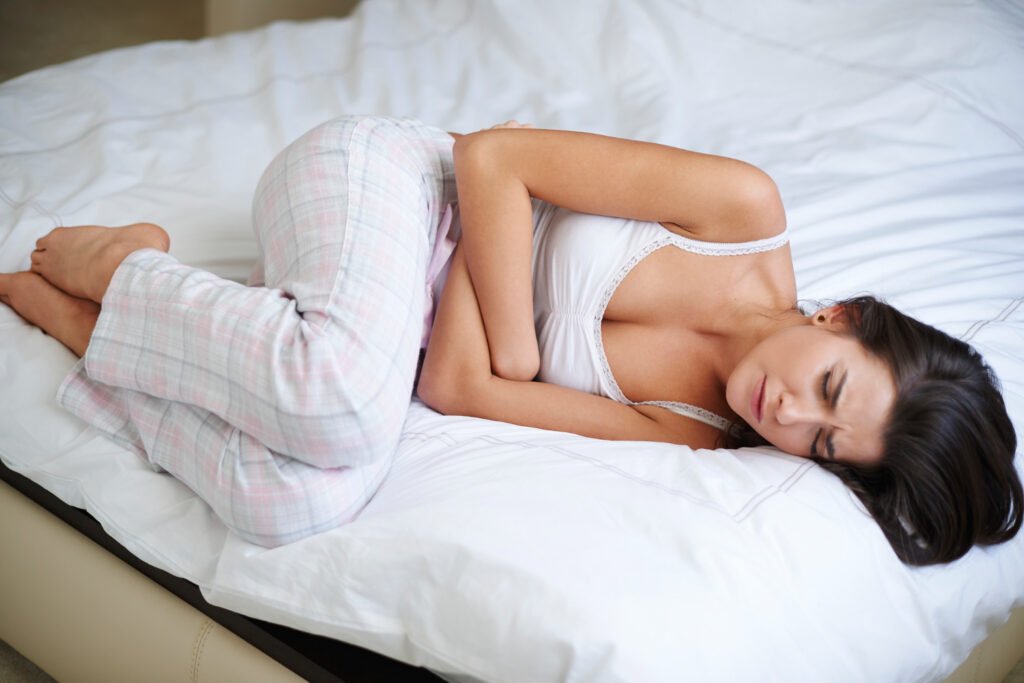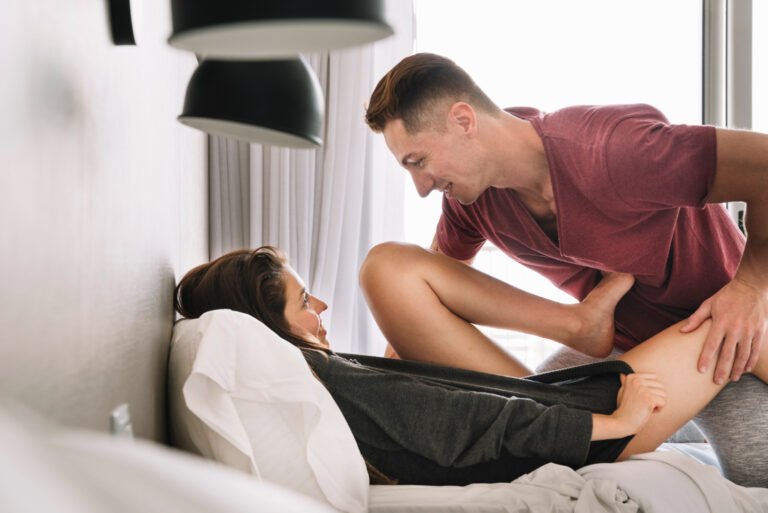
Experiencing cramps after sex can be uncomfortable and worrying, but it’s more common than you might think. These cramps can feel like menstrual cramps or sharp jabs in your lower belly or pelvis, and they can happen to anyone, regardless of gender identity. While they’re often mild and fade quickly away, sometimes they signal something that needs attention. Causes range from normal body responses, like muscle contractions during orgasm, to issues like infections or emotional stress. This article dives into why cramps happen after sex, how to ease them, and when to see a doctor. Written in a friendly, simple way, it’s here to help you understand your body and enjoy intimacy without discomfort.
Why Cramps Happen After Sex
Cramps after sex can stem from various causes, both physical and emotional. During sex, your pelvic muscles contract, especially during orgasm, which can lead to mild cramping afterward as they relax. Hormones like oxytocin, released during climax, can also trigger uterine contractions in women, mimicking menstrual cramps. Deep penetration or vigorous thrusting might irritate the cervix or strain pelvic muscles, causing discomfort. Other factors include dehydration, which tightens muscles, or conditions like endometriosis or fibroids, which can worsen with sexual activity. Stress or anxiety during sex can tense up your body, leading to cramps. For men, prostate issues or intense orgasms might cause pelvic pain. Understanding the cause is key to finding relief, and most cramps are harmless. If they persist or worsen, though, it’s worth checking with a doctor.
Common Causes of Post-Sex Cramps
Orgasm-Related Muscle Contractions
Orgasms involve strong muscle contractions in the pelvic area, which can lead to cramping afterward. In women, the uterus and vaginal muscles tighten and release, sometimes causing a lingering ache similar to period pain. Men may feel cramps in the pelvic or groin area due to intense contractions during ejaculation. These cramps are usually mild and fade within minutes or hours. Dehydration or fatigue can make them feel worse, as tired or tight muscles are more prone to cramping. Stretching gently before or after sex and staying hydrated can help. If these cramps happen every time or feel severe, it might point to an underlying issue, so keep track of symptoms and talk to a doctor if needed.
Deep Penetration or Vigorous Sex
Deep penetration, especially in positions like doggy style, can bump against the cervix or strain pelvic ligaments, leading to cramps after sex. Vigorous thrusting can also overwork pelvic muscles, causing soreness later. This is more likely if you’re not fully aroused, as arousal increases vaginal lubrication and cervical positioning, reducing irritation. Certain positions or rough sex might not suit your body, and that’s okay. Using lube, going slower, or trying positions with shallower penetration, like missionary with a pillow, can help. Communicate with your partner about what feels good to avoid discomfort. If cramps from deep penetration persist, a doctor can check for conditions like a tilted uterus or cervical sensitivity.
Medical Conditions
Some health issues can cause or worsen cramps after sex. Endometriosis, where uterine tissue grows outside the uterus, often leads to pelvic pain during or after sex. Fibroids, non-cancerous growths in the uterus, can cause cramping when disturbed by penetration. Pelvic inflammatory disease (PID) or ovarian cysts may also trigger pain. In men, prostatitis or epididymitis can cause post-sex pelvic cramps. Hormonal imbalances, like low estrogen, can reduce lubrication, increasing friction and discomfort. If cramps come with heavy bleeding, fever, or unusual discharge, see a doctor promptly. Tracking symptoms and discussing your sexual history with a healthcare provider can pinpoint the cause and guide treatment, whether it’s medication, therapy, or lifestyle changes.
How to Ease Cramps After Sex
If you’re dealing with cramps after sex, there are simple ways to find relief. Start by resting in a comfortable position, like lying down with a pillow under your knees, to relax your pelvic muscles. A warm heating pad or hot water bottle on your lower belly can soothe cramps by boosting blood flow. Gentle stretching or a warm bath can also loosen tight muscles. Drink water to stay hydrated, as dehydration can worsen cramping. Over-the-counter pain relievers like ibuprofen can help if the pain lingers. If stress is a factor, try deep breathing or mindfulness to calm your body. Experiment with different sex positions or slower paces to see what feels better. If cramps keep happening, note when they occur and talk to a doctor to rule out underlying issues. These steps can make intimacy more comfortable.
Preventing Cramps in the Future
Warm-Up and Lubrication
A good warm-up before sex can prevent cramps by relaxing your pelvic muscles and increasing blood flow. Spend time on foreplay—kissing, touching, or oral sex—to get fully aroused, which helps the vagina expand and lubricate naturally. If you need extra help, use a water-based lube to reduce friction, especially during longer sessions or with deep penetration. Lube can also ease strain on pelvic muscles, lowering the chance of cramps. Avoid scented or flavored lubes, which can irritate sensitive areas. Communicate with your partner about pacing and comfort to keep things relaxed. A warm-up isn’t just about pleasure—it’s about preparing your body to avoid discomfort later. Taking these steps can make sex feel better and reduce post-sex cramping.
Choosing Comfortable Positions
Some sex positions are gentler on your body and less likely to cause cramps. Missionary with a pillow under your hips allows shallower penetration and less cervical irritation. Spooning, where both partners lie on their sides, keeps things relaxed and avoids deep thrusting. Positions where you control depth, like cowgirl, let you set a comfortable pace. Avoid positions that feel straining or cause pain during sex, as they’re more likely to lead to cramps afterward. Experiment to find what works for your body, and talk openly with your partner about preferences. Switching positions during sex can also prevent muscle fatigue. Choosing comfortable setups helps you enjoy intimacy while minimizing the risk of post-sex discomfort.
Staying Hydrated and Relaxed
Dehydration can tighten muscles, making cramps after sex more likely, so drink plenty of water daily, especially before and after intimacy. Stress or anxiety during sex can also tense your pelvic muscles, leading to pain later. Practice deep breathing or light stretching before sex to stay relaxed. Create a calm environment with soft lighting or music to ease your mind. If you’re feeling rushed or nervous, take time to connect with your partner through talking or cuddling first. Regular exercise, like yoga, can keep pelvic muscles flexible and less prone to cramping. Prioritizing hydration and relaxation supports your body’s ability to handle sexual activity comfortably, reducing the chance of cramps.
When to See a Doctor
Most cramps after sex are harmless, but some signs mean you should see a doctor. If cramps are severe, last more than a day, or come with symptoms like fever, heavy bleeding, or unusual discharge, get checked out. These could point to infections, endometriosis, or other conditions needing treatment. Men with persistent pelvic pain might need to check for prostate issues. If cramps happen every time you have sex or disrupt your life, a doctor can help find the cause. Be open about your symptoms and sexual habits to get accurate care. Tests like ultrasounds or STI screenings might be needed. Early attention can prevent complications and help you feel better, so don’t hesitate to seek help if something feels off.
Keeping Intimacy Comfortable
Cramps after sex don’t have to ruin your intimacy. By understanding why they happen and trying simple fixes—like using lube, choosing gentle positions, or staying hydrated—you can reduce discomfort. Open communication with your partner about what feels good builds trust and makes sex more enjoyable. If cramps persist, don’t ignore them; a doctor can offer solutions tailored to you. Everyone’s body is different, so experiment with what works and be patient. The goal is to feel good during and after sex, so you can focus on connection and pleasure. With a few tweaks and attention to your body, you can keep intimacy fun, safe, and cramp-free.



